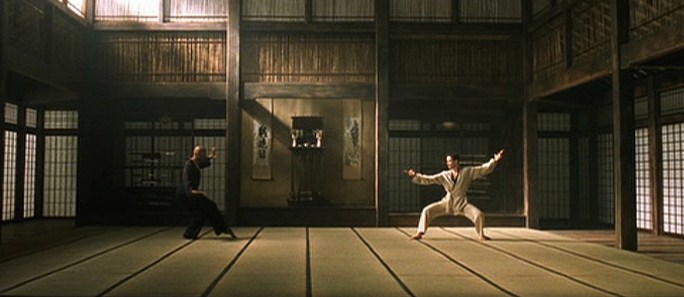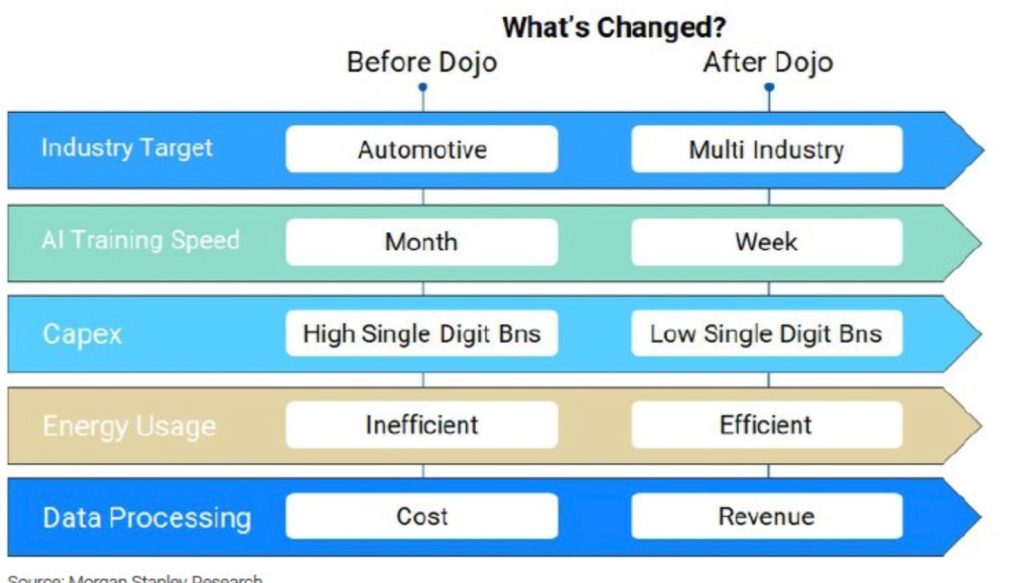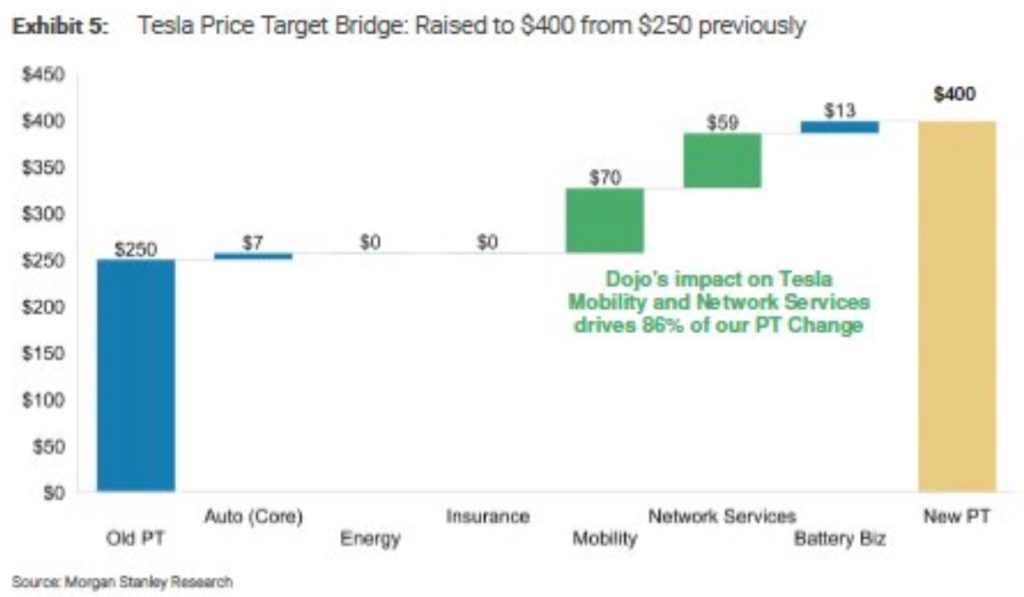Tesla's Dojo Supercomputer: Redefining AI with Unprecedented Computing Power

Tesla's (TSLA) stock is experiencing a remarkable surge in pre-market trading, and the catalyst behind this dramatic upswing is an optimistic report from Morgan Stanley, which underscores the transformative potential of Tesla's cutting-edge Dojo supercomputer. This surge in stock value is a direct result of Morgan Stanley substantially raising its price target for Tesla's stock, emphasizing the game-changing capabilities of Dojo.
Dojo stands as Tesla's proprietary supercomputer platform, meticulously engineered from scratch to cater to the demands of AI machine learning, particularly in the domain of video training. Tesla harnesses the wealth of video data generated by its expansive fleet of vehicles and processes it through Dojo's custom-built infrastructure and chips. What sets Dojo apart is its extraordinary computing power, boasting the capacity to perform a staggering 100 Exa-flops of operations by the end of 2024. This mind-boggling computational capability is a testament to Tesla's commitment to pushing the boundaries of AI technology.
While Tesla already boasts several immensely powerful NVIDIA GPU-based supercomputer clusters, Dojo takes it a step further by incorporating bespoke hardware and an infrastructure purpose-built by Tesla itself. This homegrown approach is a strategic move by the company to gain a competitive edge in the dynamic world of AI.
The primary goal of Dojo is to augment Tesla's capacity to train neural networks using video data, an indispensable component of the computer vision technology that underpins its ambitious self-driving initiatives. The unveiling of Dojo took place at Tesla's AI Day in 2021, but at that point, the company was still in the early stages of deployment. It had just introduced its first chip and training tiles, with ongoing efforts to assemble a full Dojo cabinet and cluster, also known as the "Exapod."
A year later, at AI Day 2022, Tesla showcased significant advancements in the Dojo project, including the completion of a full system tray. Back then, Tesla had set its sights on achieving a fully operational cluster by the first quarter of 2023. However, the first quarter came and went without any updates on Dojo's status. It wasn't until this summer that Tesla officially launched Dojo, accompanied by a plan to incrementally scale its capacity to a staggering 100 Exa-flops by the close of 2024.
As Tesla transitions not only its computer-based visual perception but also vehicle controls to be neural net-based, the company finds itself constrained by computational resources in pursuit of its self-driving ambitions. This is precisely where Dojo comes into play, poised to make a pivotal difference.
Morgan Stanley, recognizing the monumental significance of Dojo, has released a comprehensive analysis of its potential. According to Morgan Stanley analyst Adam Jonas, who penned the note, "The autonomous car has been described as the mother of all AI projects. In its quest to solve for autonomy, Tesla has developed an advanced supercomputing architecture that pushes new boundaries in custom silicon and may put Tesla at an asymmetric advantage in a $10 trillion total addressable market." Jonas goes on to argue that Dojo alone could add an astonishing $500 billion in value to the company, underlining the unparalleled importance of this venture.
What sets Tesla apart is its unwavering focus on designing its AI chips tailored explicitly for video-based AI training, potentially positioning the company as a formidable player in this arena. Moreover, beyond its contribution to advancing self-driving technology, there is speculation about Dojo evolving into a direct revenue generator, a notion that CEO Elon Musk has hinted at in the past.

The incorporation of Dojo into the equation has prompted Morgan Stanley to revise its price target for Tesla's stock dramatically. The price target has soared from $250 to $400, signaling a momentous shift in valuation by a reputable institution like Morgan Stanley.

In response to this promising report, Tesla's stock has surged by as much as 6% in pre-market trading. While Dojo's potential plays a substantial role in this boost, other factors, such as the looming possibility of a significant UAW strike, which could adversely affect Tesla's competitors and further solidify Tesla's position in the US market if it materializes, are also contributing to the positive sentiment surrounding the company. Tesla's journey with Dojo promises to be transformative not only for the electric vehicle pioneer but also for the broader landscape of AI and autonomous driving. The computing prowess of Dojo is set to redefine the possibilities of artificial intelligence in the real world.


Comments
Post a Comment